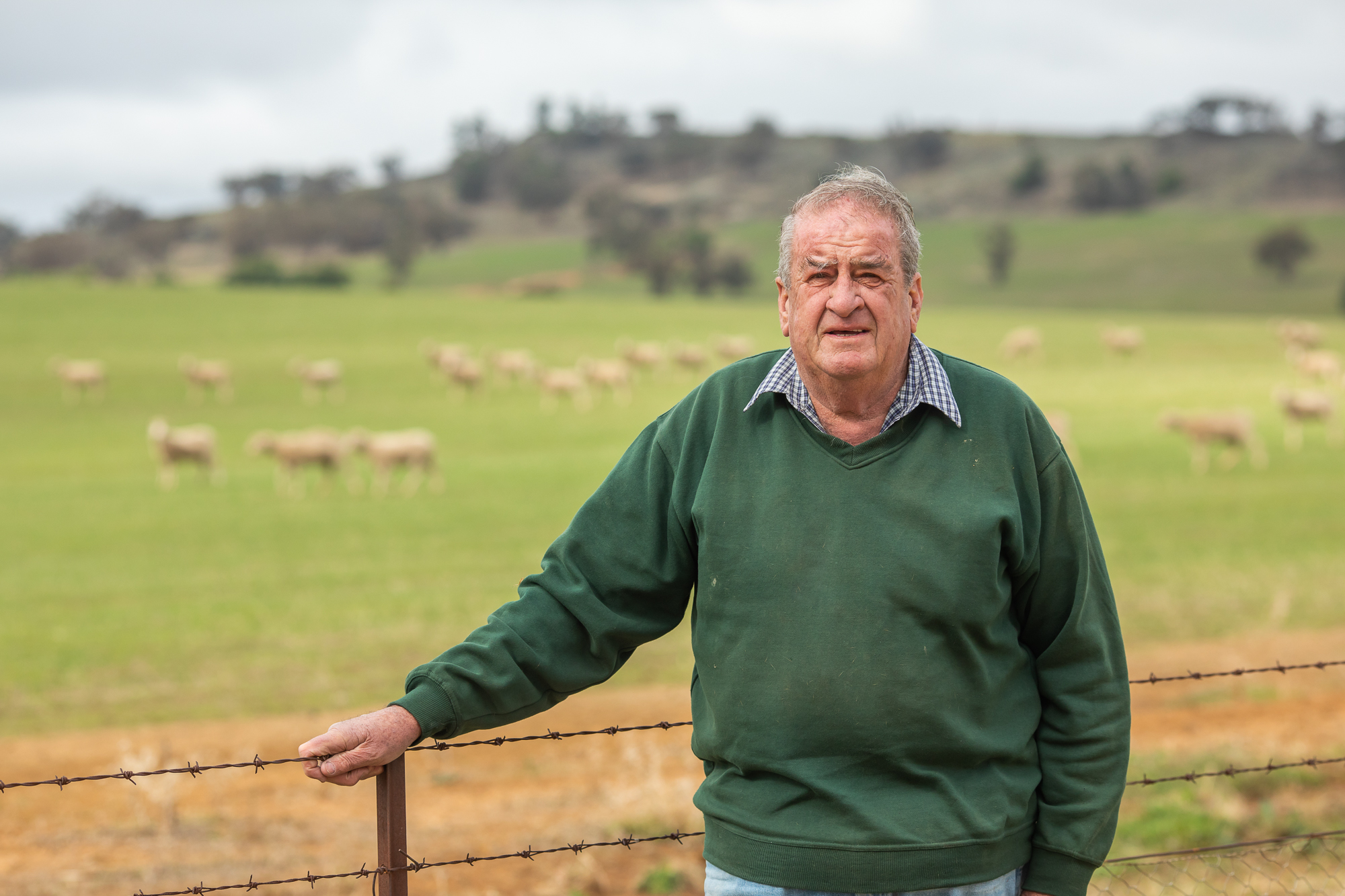A practical approach to building resilience
“If you're feeling a bit down, go and fix the worst set of gates on the farm. It’s one thing you can do to get your mind off the dry times and give you the satisfaction of getting those gates in order and swinging properly.”
Ross Edwards is a practical man.
Ross was born and raised on a farm in Yerong Creek, midway between Albury and Wagga Wagga, and has lived in those parts all his life
For 50 years, Ross has been associated with the Henty Machinery Field Days, one of the largest events on the agricultural calendar. No stranger to the ups and downs of farming life, Ross has seen his community go through many years of drought.
“I believe we are fairly fortunate here. While our canola crops did fail, we were able to cut it and put it into our silage, and that's fed the sheep right through the summer and autumn. We had a good supply of oats on hand, and water in the dams and from Riverina water as a backstop if needed.
“But drought is very tough on the little communities. It’s affecting the communities around here, but not as much as other areas further out. It certainly has an effect on businesses. People have certainly tightened their belts and are not spending as much as they may have in other years. People have become pretty good at hanging in there until things turn around.”
The resilience of rural communities is not lost on Ross, who recalls a time in the Millennium Drought when the community banded together to fit out the local club.
“I go back to 2006 when it was very dry – similar to what we have now – and our little Bowling Club needed some work. The hotel had closed down in Yerong Creek in 2000 and our club was a modest fibro building. We decided that we'd have some working bees to extend the club and put a brand new set of toilets on.
“People would come off the farm and spend a day there, doing carpentry or cementing, or whatever it might be, and then have couple of beers afterwards. I believe that helped people immensely, having that outlet away from the farm, and going in there and working with 10 or 12 blokes for the day. Camaraderie is the best word for it, I suppose. It brings the community together.
“I believe rural communities are resilient. It’s a good lifestyle. When you get your good years and you can see a beautiful wheat crop, or your lambs top the market in Wagga, it gives you a sense of achievement and satisfaction. And you're your own boss too.
Ross also sees that resilience on show at the Henty Field Days, even in the toughest years.
“Drought doesn’t keep people away. I think they see it as a pilgrimage. They still come because it gives them a chance to get away from the farm for a day, and I know a lot of people use it to catch up with somebody from another area, to meet and have lunch together, or have a bit of a chin wag.
“As far as the exhibitors go, it’s tough on them but they know that people are going to need machinery or yards or whatever it is again at some stage. They just keep coming along and put the hat in the ring and know that when things come good, they'll benefit.
“One of the big things with the Field Days, is the fact that it’s a co-operative. All the money goes back either into the site or into other areas within the community. The catering, the parking, the garbage collection and those sorts of jobs are all undertaken by sporting clubs, or churches, or schools and it makes you feel really good when I see that that money has gone back into little towns and what they've done with that money. They've got facilities there that they would have never had without their involvement in the Field Days.”
In times of drought, or bushfire or personal anguish, Ross said his community bends over backwards to help those in need.
“If somebody gets hailed out or has stock losses their neighbours are there straight away to help.”
And if starts to feel a bit much, Ross says it’s ok to lean on the help that is available.
“I think that the main thing is that people don't get down in the dumps. You need to look for the positives and seek help if you’re in trouble.”
The Australian Government resource Head to Health has digital mental health and wellbeing resources, for yourself or for someone you care about – visit headtohealth.gov.au.
Anyone who is experiencing a mental health emergency (themselves or others) should call Mental Health Line 1800 011 511, Lifeline 13 11 14 or call 000.






